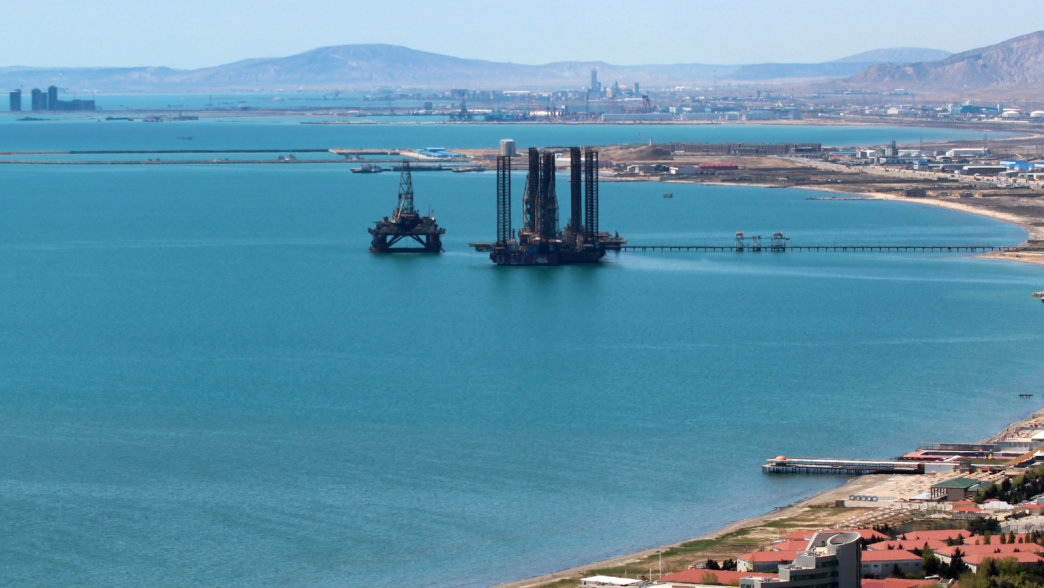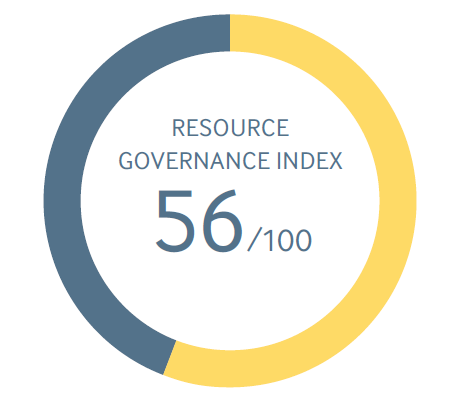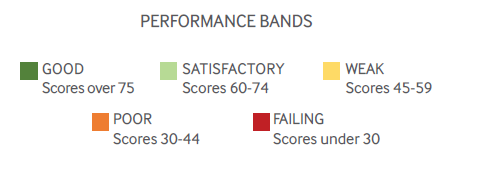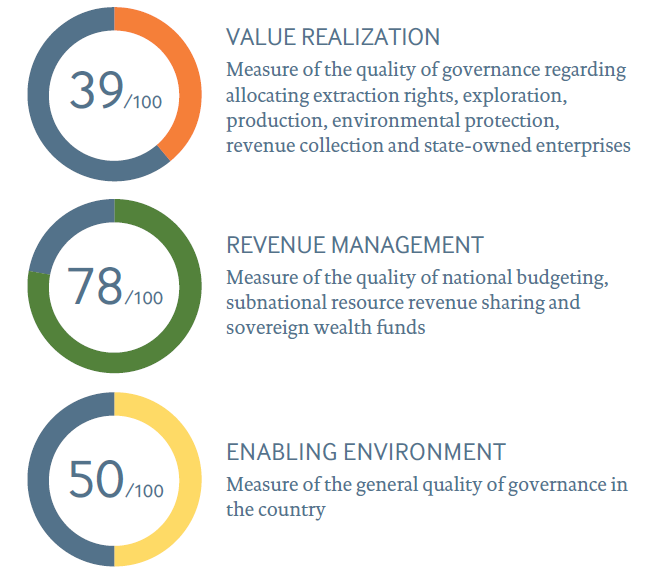
2021 Resource Governance Index: Azerbaijan (Oil and Gas)
Azərbaycan dili »
Azerbaijan’s oil and gas sector scored 56 points out of 100 in the 2021 Resource Governance Index (RGI), up by nine points since the 2017 RGI. The country’s ability to realize value from the sector and its overall “enabling environment” deteriorated since the last assessment, but revenue management improved by 35 points and now places in the “good” performance band.
Key messages:
- Governance of licensing received a “failing” 11 points, due to a lack of rules and disclosures in the licensing process, as well issues regarding disclosure of officials’ financial interests and identification of the beneficial owners of companies involved in the sector.
- The governance of local impacts received a “failing” score, with issues both in terms of the laws and disclosures of environmental and social impact assessments and environmental mitigation plans.
- SOCAR, the state-owned oil producer, scored in the lower end of the “satisfactory” performance band, with commodity sales rules and disclosures especially problematic.
- The implementation of fiscal rules and their monitoring boosted the national budgeting subcomponent score by 37 points since the 2017 RGI.
- SOFAZ, the country’s sovereign wealth fund, received a “good” score due to improvements in both the legal framework and disclosures.
NRGI recommends the following courses of action to improve oil and gas governance in Azerbaijan:
- The Cabinet of Ministers should ensure that despite leaving the EITI in 2017, Azerbaijan continues to disclose information on the extractive sector, and should push for best practice in this regard. This also means continuing engagement with civil society actors and working on strengthening beneficial ownership disclosures.
- SOCAR should publish information on its commodity sales, ensuring the disclosure of sales volumes and values, and the identities of the buyers of its oil.
- SOFAZ should continue with the promising progress made on disclosures, and should be used as a benchmark for other Azerbaijani government institutions.
- The Ministry of Ecology and Natural Resources should pass laws mandating public disclosure of environmental impact assessments and should introduce stricter rules and monitoring systems to ensure a holistic approach to mitigating the environmental risks of the extractive sector.
- The Ministry of Energy should play a key role in revamping the existing regulations to make them more transparent and accountable.



